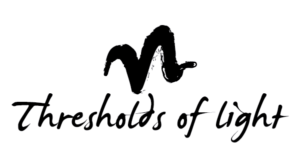To José María Castillo, theologian
Our friend and admired José María Castillo,
On 24 April you published an article in your RELIGIÓN DIGITAL blog in which you commented on our book Después de Dios. Otro modelo es posible [After God. Another model is possible] that (by a simple oversight, we assume) you attributed to Roger Lenaers. In it you use some expressions that strike me as inappropriate and which I would like to comment on (leaving aside the epithet “know-alls” that you apply to us –another oversight, we assume–).
- We are six different authors (in alphabetical order: José Arregi, Carmen Magallón, Jacques Musset, Mary Judith Ress, José María Vigil, Santiago Villamayor) with our own sensibilities and perspectives, which do not always coincide and which do not easily accept the wholesale judgements you pass.
- Nevertheless, we agree that theism understood as the affirmation of a “God” traditionally represented as the supreme and causal Entity, omnipotent and omniscient, different or separate from the world and endowed with attributes that are overly anthropomorphic, is today incompatible with the scientific vision of a universe without space-time limits, evolutionary and in a constant process of self-creation, of which this human species that we are and to which Jesus of Nazareth belongs is neither the centre nor the end.
- We believe, therefore, that we find ourselves at a historic crossroads where three alternatives are open to us: a) To continue to cling to that image of God basically conceived in Sumer some 7,000 years ago and still current in the official magisterium and in the popular imaginary, as well as in the predominant theology; b) To stop using the term “God”, at least as long as that common imaginary persists; c) To radically go beyond the traditional imaginary and move from the theistic image of “God” to the affirmation of God as the fontal and eternal Mystery of everything. We only rule out the first option, which we, moreover, consider to be at odds not only with today’s culture, but also with the deep inspiration of the Bible and the explicit teachings of the great mystics of the Christian and other religious traditions.
- Our position may be “ambiguous”, as you say. But all language about God is and has always been so. And, be that as it may, in our case it is not a position of “abandoning or even denying God”, nor is it our intention to look for “cop-outs” or to “tamper with” any atheism, but rather to move from “God” to God or to leave “God” for God, whether we assign this name or another or no name at all.
- You uphold the “transcendence-immanence” binomial as “essential for being a Christian today”. However, we take the view that God, Mystery or Presence or fontal Reality, is beyond the opposing terms of “transcendent” / “immanent”, beyond, therefore, pantheistic monism and theistic dualism. For example, does the statement “in Him we live and move and have our being”, which the Acts of the Apostles put into Paul’s mouth on the Areopagus in Athens (Acts 17:28 ESV), express transcendence or immanence? Or when St John of the Cross asserts that “God is the substance of the soul”, does he mean transcendence or immanence? The examples are countless, as you know. Words and their meanings neither deplete God nor bind us.
- So we claim that God is “non-theistic” or “transtheistic” in the above sense, in a similar way as you do, since when you were younger, you claimed that the “God of Jesus” (only him, according to you) is “non-religious” or “trans-religious”, which provoked the outrage of many people both in the past and still today.
- We reaffirm ourselves as disciples of Jesus, and in the 21st century we want to live his liberating Gospel, his living spirit beyond the literal meaning and the Catholic religious institutions that stifle life. And –aware that we will never succeed– we try to express this in words and in paradigms consistent with today’s worldview, sciences and culture. As you have done, José María, in your long and fruitful life, in the midst of misunderstandings and painful condemnations from your own people, from the ecclesiastical institution.
We take the road towards a free, joyful and peaceful theology.
Aizarna (Basque Country), 14 May, 2021
(Translated by Sarah J. Turtle)
- NB: The book can be downloaded free of charge here:
https://www.academia.edu/45603321/_Despu%C3%A9s_de_Dios_Otro_modelo_es_posible_Release_1_1_4mayo2021_Jos%C3%A9_ARREGI_Carmen_MAGALL%C3%93N_Jacques_MUSSET_Judith_RESS_Santiago_VILLAMAYOR_y_Jos%C3%A9_Mar%C3%ADa_VIGIL
